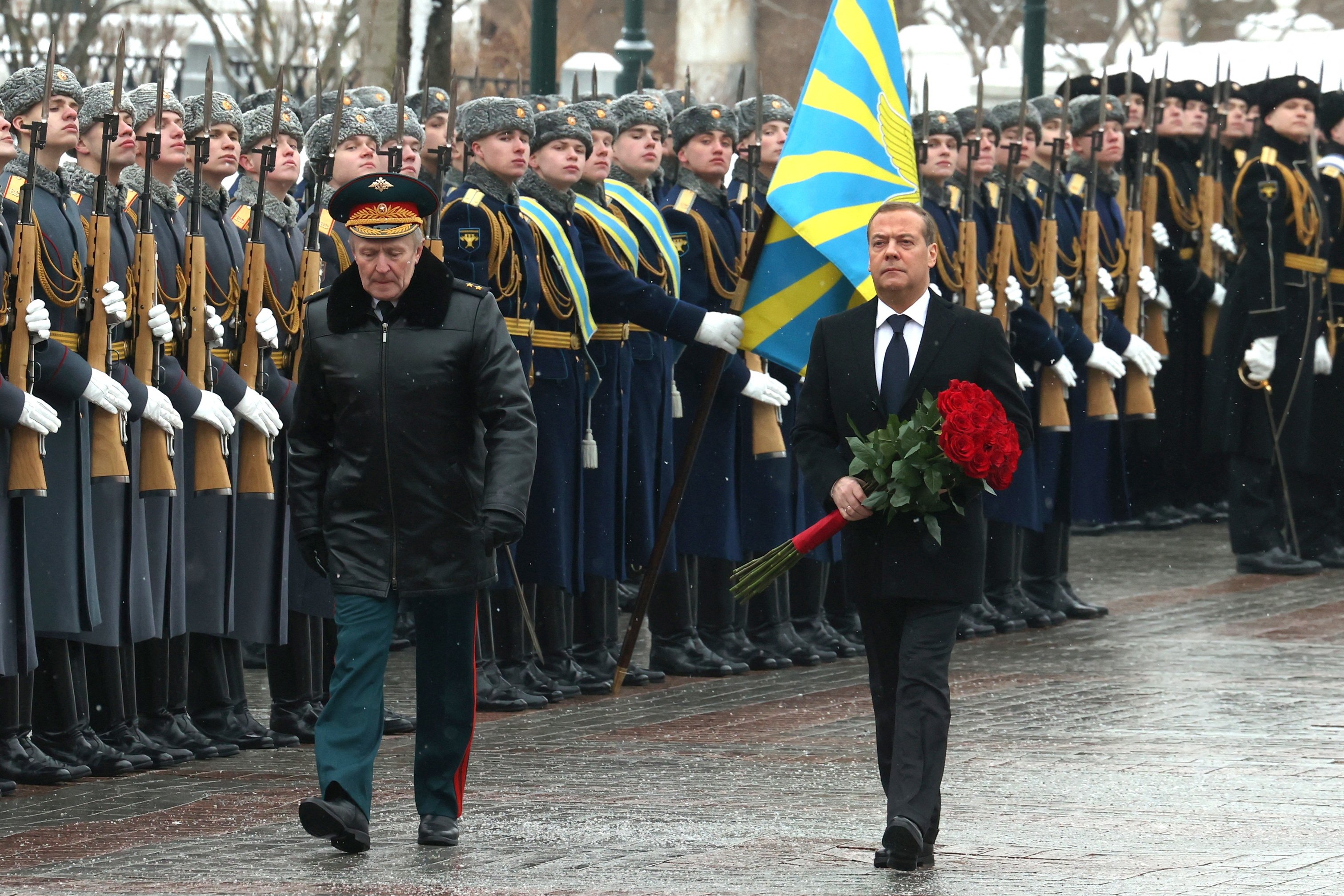
In the crazy group are men such as Patriarch Kirill, head of the Russian Orthodox Church. Last week he declared the Russian invasion of Ukraine was "a Holy War in which the Russian people, by defending the single spiritual space of Holy Rus’, are protecting the world from the onslaught of globalism and the victory of the West, which has fallen into satanism".

Dmitry Medvedev, Putin’s most trusted and longest-serving crony, also often sounds crazy: since the start of the war he has been the main source of Russian threats of nuclear war if things don’t go well. (He is deputy head of the Russian Security Council, which controls the Ukrainian war at the strategic level.)
In February, for example, Medvedev warned that the Western alliance must not let Ukraine try to take back its Russian-occupied territories, since "attempts to return Russia to the borders of 1991 will lead to ... a global war with Western countries using the entire strategic [i.e. nuclear] arsenal of our state on Kyiv, Berlin, London, Washington".
And just in case the forces of Satan thought Russia was bluffing, Medvedev asked himself the key question: "Will we have the courage to do this if the disappearance of a thousand-year-old country, our great Motherland, is at stake, and the sacrifices made by the people of Russia over the centuries will be in vain?"
He replied: "The answer is obvious."
There is a huge logical leap between the actual outcome Medvedev is trying to deter ("return Russia to the borders of 1991") and the alleged consequences of having to give back the conquered Ukrainian land ("the disappearance of ... our great Motherland").
He was clearly aware he had to bridge that gap with rhetoric. He is therefore really sane.
Sane is worse, because it means that the regime’s leading figures and their propagandists have accepted that the regime’s survival (deliberately conflated with the survival of the Russian state and people) now depends on destroying the basic rule that has kept the great powers more or less at peace with one another for the past 79 years.
That rule says that henceforward borders may not be changed by force. Conquest used to be legal and was the motive for most of the wars in history. But the new rule was written into the UN Charter in 1945, and subsequently made even more explicit in the Final Act of the Organisation for Security and Co-operation in Europe in 1975 (both signed by Moscow).
Some territories do still change hands by force, but the rule has been surprisingly effective because almost every country abides by the principle that nobody should recognise such conquests as legitimate. East Timor eventually got its independence back from Indonesia. Almost nobody recognises the Israeli annexation of East Jerusalem. Et cetera.
It’s not the crazies we have to worry about. It’s coldly rational nationalists like Medvedev and chief propagandist Vladimir Solovyov, who now argues that the great project of extending Russia’s borders to include all lands and peoples that Moscow defines as "Russian" requires the destruction of this basic rule.
Solovyov, a "journalist" who serves as a trusted mouthpiece for Putin’s regime, is now pointing out on his TV talk show, the most watched in Russia, that "borders have always been violated. That’s the historical reality".
"All sorts of accidental formations incapable of their own statehood may not survive this era," he says. "By that, I mean the Baltic states and all of Europe. I don’t think that the European borders in their current configuration will continue to exist much longer."
Solovyov is not stupid. He understands the parallel between Hitler’s mistaken belief that Britain and France would not respond to his invasion of Poland in 1939 and Putin’s blunder in believing that Nato would not oppose his invasion of Ukraine in 2022.
But he defends it anyway. This kind of talk would not happen on Russian television if the Kremlin didn’t want it to.
Unfortunately, if the concept of inviolable borders is scrapped, especially when the great powers are involved, then we are heading straight back to 1939.
— Gwynne Dyer is an independent London journalist.












